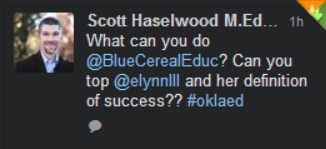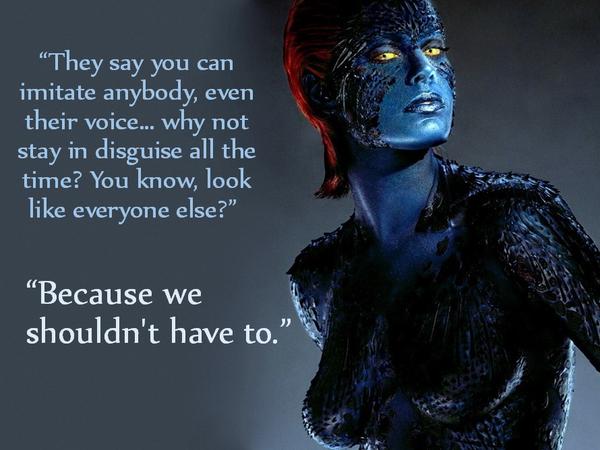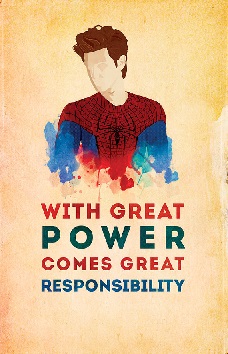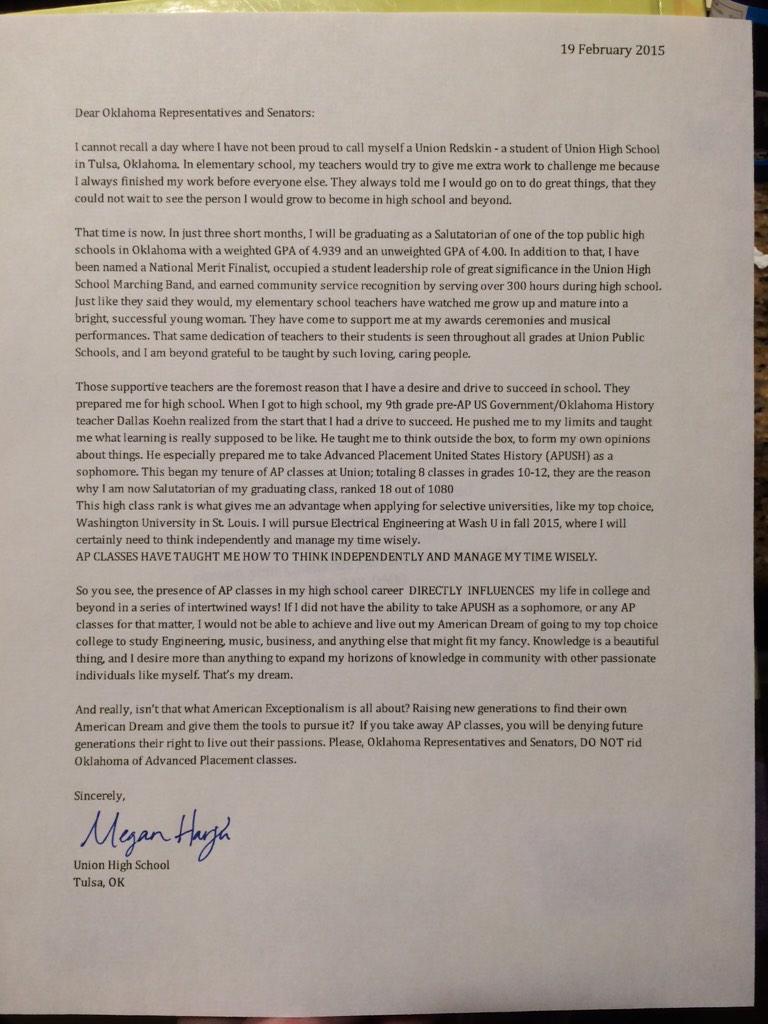If you normally read this blog via email, you’re going to want to go to the actual website post for this one so you’ll have the embedded multimedia support elements (i.e., video clips). Also, this one uses a bit of language.
I guess most blogs use language, come to think of it. In this case, though, I mean the naughty sort.

For those of you too young to remember, Sylvester Stallone is an old-time thespian best known for films offering social commentary and subtle allegory in the guise of action-adventure – lots of explosions and hitting people in the face, but… profoundly.
One such piece is 1993’s Demolition Man, in which he’s joined by Wesley Snipes and Sandra Bullock to address the ubiquitous challenges of acculturation. Of ‘fitting in’. Of how we deal with one another’s different values and customs – or how we don’t.
[[{“type”:”media”,”view_mode”:”media_small”,”fid”:”946″,”attributes”:{“alt”:””,”class”:”media-image”,”typeof”:”foaf:Image”}}]]
Whether it’s moving to a new school, a new state or even another country, or merely crossing over into someone else’s paradigm or worldview, acculturation can be rough. It’s disorienting, and even the well-intentioned may not full appreciate which parts are familiar for you and which are frightening, or frustrating. You have gone from being an ‘us’ in your world to a ‘them’ in theirs.
You are ‘the other’ – as are they, to you.
We cannot help but see our own ways, our own values, our own styles, as ‘normal’. As George Carlin used to say, everyone who drives slower than us is a ‘Sunday Driver’ and everyone who drives faster is a maniac – it’s all about variance from the ‘us’.

Most of us do pretty well when tackling these things consciously. The girl in the hijab, the kid who doesn’t eat meat, the quiet boy who has trouble making eye contact or speaking in front of others – we’re good lil’ moderns, and we GOT THIS. We took those classes in teacher school explaining about poverty or race or various states of dysfunction at home and how it impacts our kids, and we’re just sensing and empathizing our bleeding hearts out all over it.
Problem is, sometimes students misunderstand our ways or reject our paradigms for reasons we don’t understand – and which we might not particularly appreciate if we did. They may just be lazy, or defiant, or otherwise problematic across all cultural and situational boundaries – in which case we deal with that as best we can. Other times, though, what they’re really doing is finding ways to get what THEY need without internalizing or completely giving in to OUR paradigm – the one we’ve often forced them into:
[[{“type”:”media”,”view_mode”:”media_small”,”fid”:”947″,”attributes”:{“alt”:””,”class”:”media-image”,”typeof”:”foaf:Image”}}]]
What seems obvious, decent, appropriate (or not) to one group may mean something very different to another. I have students who sit at the same table every day for lunch and who are genuinely horrified if someone else claims that table for a day. They won’t provoke a conflict, but they’re offended – they feel violated. Chances are those sitting there have no idea it’s even a thing, and as long as they can sit together, could care less where. Which group is ‘right’? Which is more ‘civilized’?
If I cough, I’m expect to excuse myself; to do otherwise is rude. If I sneeze, however, the onus is on you to bless me. Why? How many other seemingly ‘obvious’ behaviors or customs might one violate without realizing they’re even a thing? How easy is it to confuse ‘common sense’ or ‘common decency’ with ‘I was just brought up this way and you weren’t’?
Notice in this same clip, though, the power of personal connection – of finding something familiar to which to hold during what might otherwise be a very disorienting experience. The fact that our protagonist – John Spartan (Stallone) – shows little weakness does NOT mean he’s comfortable. It means that part of his paradigm – his value system – involves looking confident, and in control.
Sometimes even familiar things play different or unexpected roles when walking in the realm of the ‘other’:
[[{“type”:”media”,”view_mode”:”media_small”,”fid”:”948″,”attributes”:{“alt”:””,”class”:”media-image”,”typeof”:”foaf:Image”}}]]
Working towards a greater awareness of our own discomfort when out of our element might give us some perspective when confronted with someone not buying into our paradigm – especially when they’re not walking in our world entirely through their own will. When we understand that we’re experiencing very different realities, we can at least ask better questions – maybe even make actual progress:
[[{“type”:”media”,”view_mode”:”media_small”,”fid”:”949″,”attributes”:{“alt”:””,”class”:”media-image”,”typeof”:”foaf:Image”}}]]
See? That went well, right?
Of course it’s entirely possible that the little turd, the lazy drifter, or the drama queen who are making you crazy really are just turds and drifters and drama queens. Sometimes students make us crazy because they’re just… ginormous pains in the ass.
But for any given pain, consider taking a kind of ‘Golden Rule’ approach – attempt to fathom others as you would wish others to attempt to fathom you. Most of us recognize our own fallibility, and that our assumptions may be completely mistaken. The trick is to recognize those assumptions before reacting to those not playing in the same sandbox as ourselves – even if they rub us the wrong way:
[[{“type”:”media”,”view_mode”:”media_small”,”fid”:”951″,”attributes”:{“alt”:””,”class”:”media-image”,”typeof”:”foaf:Image”}}]]
In short, Demolition Man warns us of a number of ways in which we do our kids and ourselves a disservice through conflating habits and traditions with eternal values or universal expectations – whether rooted in different cultures, different households, or the wonders of very different DNA. If we’re to help them, or let them help us, we must begin by recognizing that their paradigms, values, and assumptions may be far different from ours. Until we bridge that gap, we’ll conflate their defiance and their coping mechanisms, their shortcomings with their mores.
Demolition Man isn’t just about a cop who tends to destroy a ridiculous amount of real estate in his pursuit of criminals – it’s about demolishing… *sniff*… the walls that keep us from truly seeing and understanding one another as well.

RELATED POST: Can We Talk? (Weird Kids Edition)
RELATED POST: By Any Means Necessary

 I’m a 2nd year 7th grade Texas History teacher. When I started – I was thrown into the mix mid year, in an urban, Title 1, public school. I was a first time teacher and was completely overwhelmed. I was learning all new curriculum, getting the hang of balancing the piles of paperwork and deadlines, learning classroom management, and trying to grow professionally all at one time. It was a mess.
I’m a 2nd year 7th grade Texas History teacher. When I started – I was thrown into the mix mid year, in an urban, Title 1, public school. I was a first time teacher and was completely overwhelmed. I was learning all new curriculum, getting the hang of balancing the piles of paperwork and deadlines, learning classroom management, and trying to grow professionally all at one time. It was a mess. It’s so teacher of us – a variety of challenges complete with topics and word limits have been issued to various #oklaed bloggers lately, some with DUE DATES! In other words, we’re giving each other actual assignments.
It’s so teacher of us – a variety of challenges complete with topics and word limits have been issued to various #oklaed bloggers lately, some with DUE DATES! In other words, we’re giving each other actual assignments.



 “They are, indeed,” said the Scarecrow, “and I am thankful I am made of straw and cannot be easily damaged. There are worse things in the world than being a Scarecrow.”
“They are, indeed,” said the Scarecrow, “and I am thankful I am made of straw and cannot be easily damaged. There are worse things in the world than being a Scarecrow.” I think the hardest thing about teaching, about marriage, about parenting, about citizenship, about socializing, cooking, fixing, feeling, running, thinking, being – is paying attention.
I think the hardest thing about teaching, about marriage, about parenting, about citizenship, about socializing, cooking, fixing, feeling, running, thinking, being – is paying attention. I’ve taught some great lessons in my time, and watched some young people have some pretty impressive lightbulb moments. Not every day, though – not most days, or most kids, or most lessons. Sometimes I really step in it, saying or doing something reckless and unnecessary – which, I mean, is the same reason the good stuff works. But sometimes it doesn’t, and I hurt someone, one of my kids, or peers, or worse – I alienate them. Lose them for the light.
I’ve taught some great lessons in my time, and watched some young people have some pretty impressive lightbulb moments. Not every day, though – not most days, or most kids, or most lessons. Sometimes I really step in it, saying or doing something reckless and unnecessary – which, I mean, is the same reason the good stuff works. But sometimes it doesn’t, and I hurt someone, one of my kids, or peers, or worse – I alienate them. Lose them for the light.

 Look, you and I both know things have gotten ridiculous lately. The inmates are running the asylum, and we can’t even say anything about it because the only protected speech these days is nutty liberal speech – am I right?
Look, you and I both know things have gotten ridiculous lately. The inmates are running the asylum, and we can’t even say anything about it because the only protected speech these days is nutty liberal speech – am I right? OK, so everyone’s gay now. Fine – live it up. We’ve got girls who are pregnant, boys who think they’re “really” girls, and a few wrecking ball personalities who insist they’re trans-bi-something or other.
OK, so everyone’s gay now. Fine – live it up. We’ve got girls who are pregnant, boys who think they’re “really” girls, and a few wrecking ball personalities who insist they’re trans-bi-something or other.  Silence for just a bit your inherent skepticism about just how innate or genetic or legitimate any variety of lifestyles, identities, or issues might be. In fact, feel free to assume that they’re all poor choices and family dysfunction – every last one – from dyslexia to pony play, it’s all just f****** up and unnatural.
Silence for just a bit your inherent skepticism about just how innate or genetic or legitimate any variety of lifestyles, identities, or issues might be. In fact, feel free to assume that they’re all poor choices and family dysfunction – every last one – from dyslexia to pony play, it’s all just f****** up and unnatural.  They’re our kids.
They’re our kids.  To them, it’s all the same – delusional though it sounds, many of them believe and feel deeply that they’re overwhelmed, underloved, misunderstood or maligned, abused or marginalized. That kind of stuff is all SO relative that it’s usually impossible to know when you’re looking at a survivor some black hole of personal trauma or the teenage equivalent of a two-year old who doesn’t get a cookie and thinks their world is over.
To them, it’s all the same – delusional though it sounds, many of them believe and feel deeply that they’re overwhelmed, underloved, misunderstood or maligned, abused or marginalized. That kind of stuff is all SO relative that it’s usually impossible to know when you’re looking at a survivor some black hole of personal trauma or the teenage equivalent of a two-year old who doesn’t get a cookie and thinks their world is over.  Some of them you couldn’t impact if you used a sledgehammer, I get that – but you impact more of them more strongly than you probably signed up for. Sorry. With power comes culpability and all that. James 3, baby.
Some of them you couldn’t impact if you used a sledgehammer, I get that – but you impact more of them more strongly than you probably signed up for. Sorry. With power comes culpability and all that. James 3, baby. Yeah, they have a circle of friends – but you really think anyone sharing their Island of Misfit Toys is a good replacement for a relatively stable adult willing to accept and push them a bit? Besides, you have a professional and moral obligation not to be part of the problem, however subtle you think your looks and tone might be.
Yeah, they have a circle of friends – but you really think anyone sharing their Island of Misfit Toys is a good replacement for a relatively stable adult willing to accept and push them a bit? Besides, you have a professional and moral obligation not to be part of the problem, however subtle you think your looks and tone might be. Consider being a reasonable, normal, loving person in whatever style you are for the other kids – the ones you ‘get’. You won’t go to hell for it, I promise.
Consider being a reasonable, normal, loving person in whatever style you are for the other kids – the ones you ‘get’. You won’t go to hell for it, I promise. 
